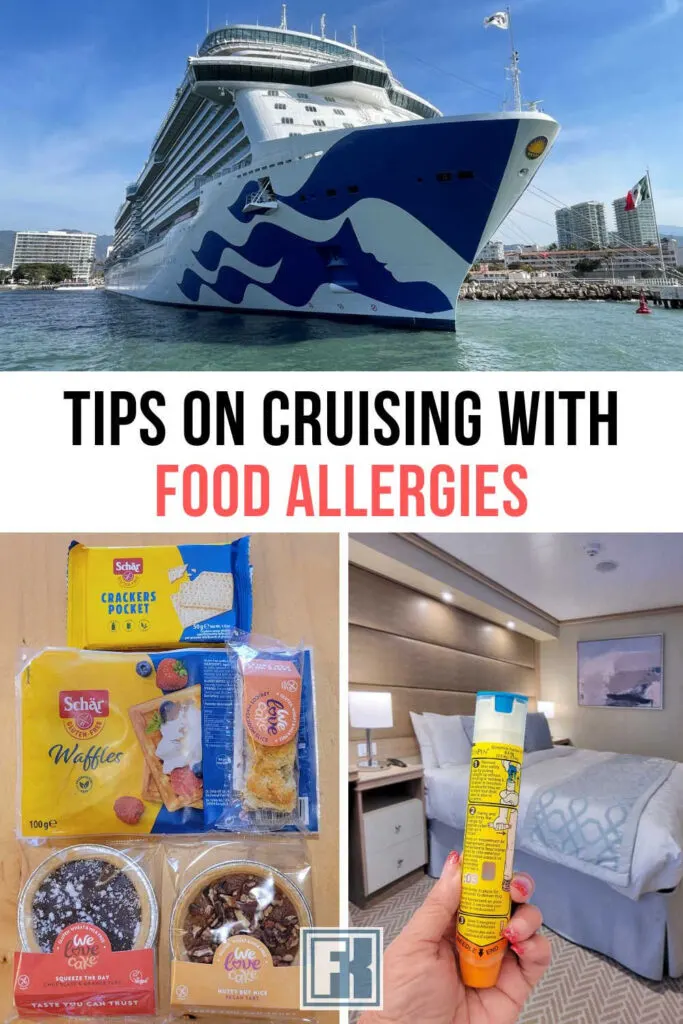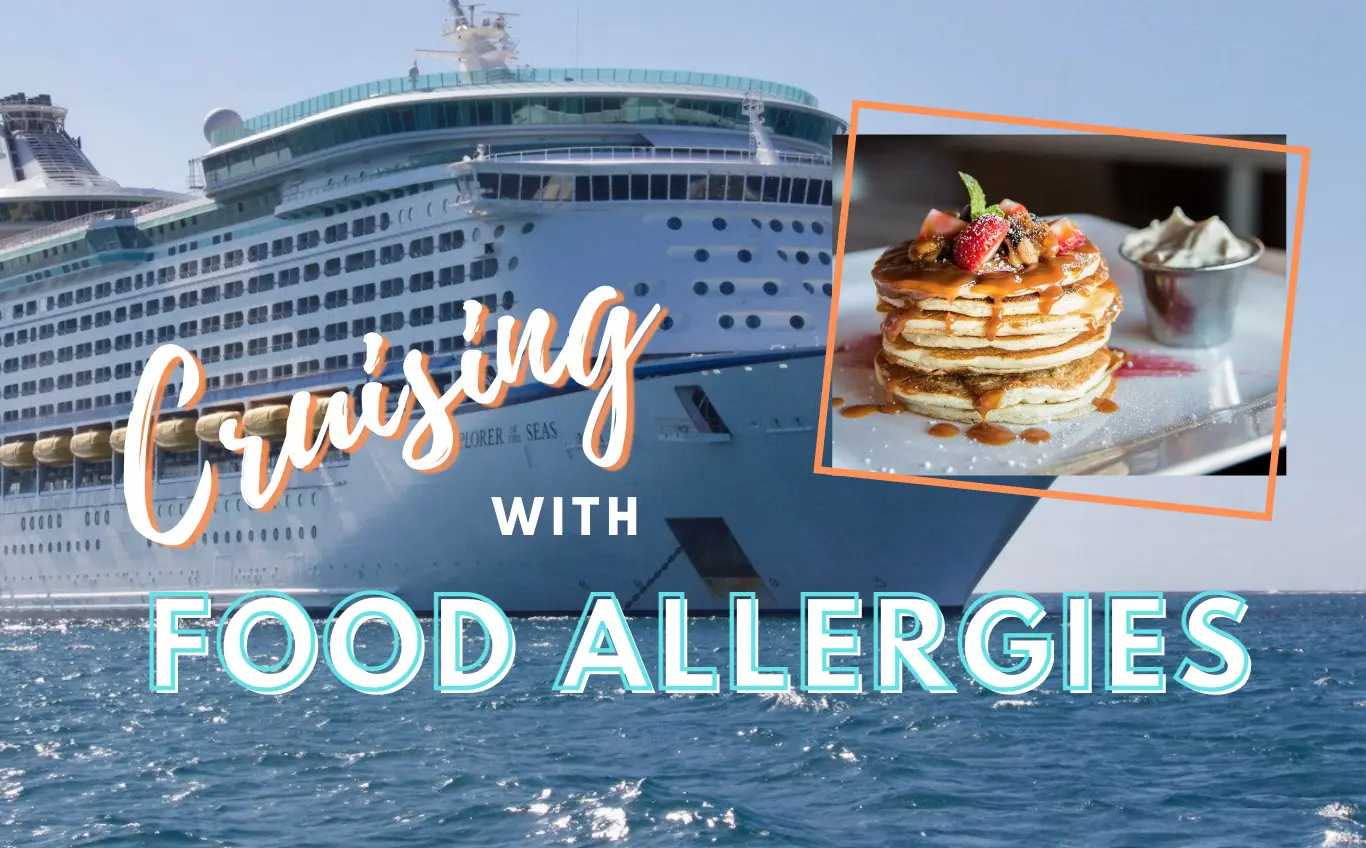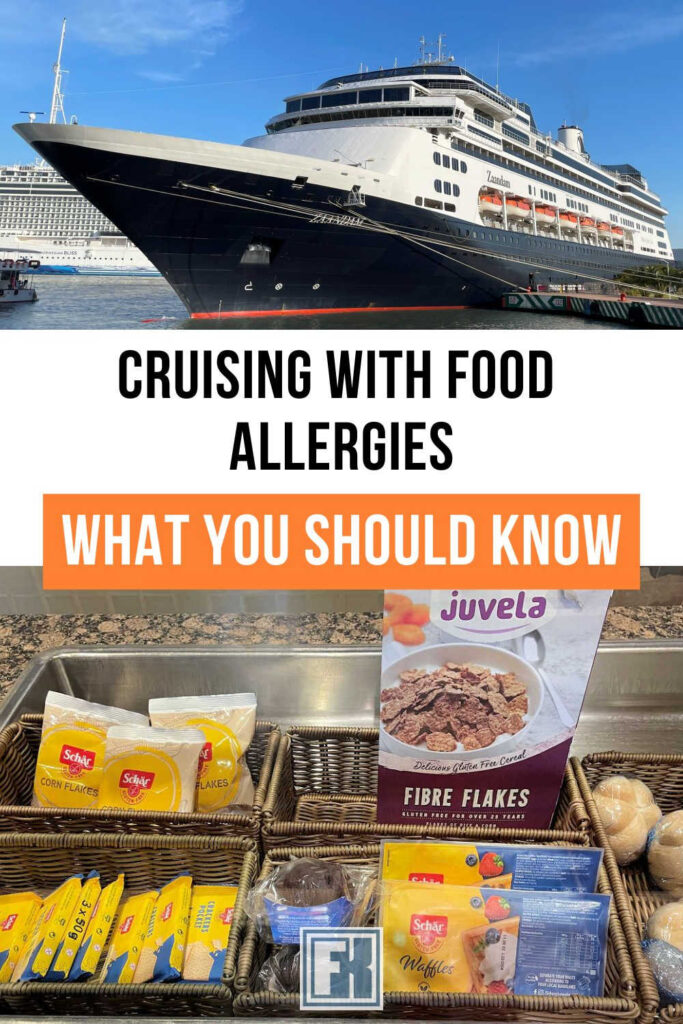If you’ve ever wondered whether you can go on a cruise if you have dietary allergies, the answer is a resounding yes! Cruises offer a wide range of options for guests with dietary restrictions, ensuring that everyone can enjoy their vacation to the fullest. Whether you have a gluten intolerance, food allergies, or any other dietary concern, cruise lines have made significant efforts to accommodate their guests’ needs. From specialized menus to designated allergy-free areas, you can embark on a worry-free cruise experience and indulge in delicious meals tailored to your dietary requirements. So, pack your bags, set sail, and get ready for a culinary adventure!
What is a dietary allergy?
Definition
A dietary allergy, also known as a food allergy, is an adverse reaction to certain food proteins. When you have a dietary allergy, your immune system mistakenly identifies certain foods as harmful and releases antibodies to fight against them. This immune response can lead to a wide range of symptoms and can be potentially life-threatening in severe cases.
Common dietary allergens
There are several common dietary allergens that are known to cause allergic reactions in people. These allergens include:
- Milk
- Eggs
- Fish
- Shellfish
- Tree nuts
- Peanuts
- Wheat
- Soy
- Sesame seeds
It is important to note that these are just some of the most common allergens, and individuals may be allergic to other foods as well. It is always best to consult with an allergist to determine the specific dietary allergens you need to avoid.
Symptoms
The symptoms of a dietary allergy can vary from mild to severe. Common symptoms include:
- Hives
- Itching or tingling in the mouth
- Swelling of the lips, tongue, or throat
- Difficulty breathing
- Nausea or vomiting
- Diarrhea
- Abdominal pain
- Dizziness or fainting
- Anaphylaxis (a severe, potentially life-threatening allergic reaction)
If you experience any of these symptoms after consuming a specific food, it is important to seek medical attention immediately.
Cruise line policies on dietary allergies
General policies
Cruise lines are becoming increasingly aware of the dietary needs of their guests, including those with allergies. Most cruise lines have implemented specific policies to ensure the safety and comfort of passengers with dietary allergies. These policies include providing alternative menu options and accommodating special dietary requests.
Pre-cruise communication
Before embarking on a cruise, it is important to communicate your dietary allergies to the cruise line. Many cruise lines provide online forms or phone numbers for guests to disclose their allergies in advance. This allows the cruise line to prepare for your specific needs and make the necessary accommodations.
Onboard accommodations
Cruise lines strive to provide a comfortable and safe environment for all guests, regardless of their dietary restrictions. Once onboard, you can expect the cruise line to have measures in place to accommodate your dietary allergies. This may include dedicated kitchen areas to prepare allergy-safe meals, special food labels, and trained staff who understand the severity of allergies and how to handle them appropriately.
Specialty dining options
Some cruise lines offer specialty dining options that cater specifically to guests with dietary allergies. These options often include gluten-free, lactose-free, and nut-free choices, ensuring that guests with dietary restrictions can still enjoy delicious meals during their cruise. Be sure to check with the cruise line ahead of time to inquire about the availability of these options.

This image is property of foreverkaren.com.
Factors to consider before booking a cruise
Researching cruise lines
Before booking a cruise, it is essential to thoroughly research different cruise lines to find out about their policies on dietary allergies. Look for cruise lines that have a strong reputation for accommodating special dietary needs and have positive reviews from past guests with similar allergies.
Reading reviews
Reading reviews from past guests can provide valuable insights into how well a cruise line accommodates dietary allergies. Look for reviews specifically mentioning how the cruise line handled food allergies and whether guests felt safe and well-cared for in this regard. This firsthand information can help you make an informed decision about which cruise line is the best fit for you and your dietary needs.
Consulting with your allergist
Before booking a cruise, it is highly recommended to consult with your allergist or healthcare provider. They can provide personalized advice and guidance based on your specific dietary allergies and medical history. Your allergist can also prescribe any necessary emergency medications or provide additional recommendations for managing your allergies during the cruise.
Preparing for the cruise
Contacting the cruise line
Once you have decided on a cruise line, it is important to contact them directly to discuss your dietary allergies. This can usually be done through their customer service department or by using the online forms provided. Inform them about the specific dietary allergens you need to avoid and any other related concerns or restrictions you may have.
Providing detailed information
When communicating with the cruise line, be sure to provide as much detailed information as possible about your dietary allergies. This includes the specific foods you are allergic to, the severity of your allergies, and any other relevant information that can help the cruise line make appropriate accommodations for you. The more information they have, the better they can meet your needs.
Requesting necessary accommodations
During your communication with the cruise line, make specific requests for the accommodations you require. This may include requesting allergy-safe meals, requesting menus in advance to review ingredient information, or requesting certain food items to be removed from your dining options. Remember, the cruise line wants to make your experience safe and enjoyable, so do not hesitate to ask for what you need.

This image is property of lifeofiris.com.
Packing for the cruise
Bringing your own snacks
To ensure that you always have safe snacks available, consider packing your own allergy-friendly snacks for the cruise. This can include pre-packaged items that are labeled safe for your specific allergies. Having snacks readily available can provide peace of mind and save you from potential allergen exposure.
Packing essential medications
It is crucial to pack any essential medications related to your dietary allergies. This may include antihistamines, epinephrine injectors (e.g., EpiPen), or any other prescribed emergency medications. Make sure these medications are easily accessible in case of an allergic reaction. It is also wise to pack a copy of your allergy action plan, which can provide guidance on how to manage an allergic reaction.
Allergy identification bracelets
Consider wearing an allergy identification bracelet while on the cruise. These bracelets can alert others, including cruise staff and fellow passengers, of your dietary allergies in case of an emergency. Allergy identification bracelets are particularly useful if you are unable to communicate your allergies during an allergic reaction or if you require medical assistance.
Onboard dining options
Main dining room
The main dining room on a cruise ship often offers a variety of menu options to cater to guests with different dietary needs. Inform the dining staff about your allergies, and they will work with you to identify safe meal choices or make adjustments to existing dishes. The main dining room usually offers a more formal dining experience and can be a great opportunity to enjoy delicious, allergy-safe meals.
Buffet area
Cruise ship buffets can be a bit more challenging for guests with dietary allergies due to the potential for cross-contamination. However, you can still enjoy the buffet by communicating with the staff about your allergies. They can guide you to safe options, prepare fresh servings from the kitchen, or provide ingredient information for various dishes. Remember to avoid any food items that may pose a risk to your allergies.
Specialty restaurants
Many cruise lines offer specialty restaurants that provide additional dining options beyond the main dining room and buffet area. These restaurants often have set menus or specific themes, which can make it easier to navigate your dietary allergies. Prior to dining at a specialty restaurant, inform the staff about your allergies so they can accommodate your needs and provide you with a delightful dining experience.

This image is property of foreverkaren.com.
Managing allergies during meals
Communicating with the staff
Clear and effective communication with the dining staff is crucial in managing your allergies during meals. Let them know about your allergies and any special dietary requests upfront. Do not hesitate to ask questions about ingredients, preparation methods, or cross-contamination risks. The staff is trained to handle these situations and will work with you to ensure the safest dining experience possible.
Reading food labels
Read food labels carefully, especially when consuming pre-packaged or buffet items. Look out for any potential allergens that may be hidden in the ingredients. If you are unsure about a particular item, seek clarification from the dining staff. Cruise lines understand the importance of accurate labeling for guests with allergies, so they will be able to provide you with the necessary information.
Avoiding cross-contamination
Cross-contamination can occur when allergens come into contact with other foods during preparation or serving. While cruise lines take precautions to prevent cross-contamination, it is always wise to be vigilant. Communicate your concerns to the dining staff, and they will take extra care in handling your food. Avoid self-service stations where cross-contamination is more likely, and opt for freshly prepared dishes when possible.
Dealing with emergency situations
Carrying emergency medications
Always carry your emergency medications with you during the cruise. This includes any prescribed medications like epinephrine injectors, antihistamines, or inhalers. Keep these medications easily accessible at all times, whether you are on a shore excursion or relaxing on the ship. In case of an allergic reaction, prompt administration of emergency medication can be life-saving.
Identifying medical personnel
Familiarize yourself with the location and identification of medical personnel onboard. Cruise ships have medical facilities and trained medical staff available 24/7 to respond to emergencies. In case of a severe allergic reaction or any other medical emergency, you can quickly locate and seek assistance from these professionals. The crew members can guide you to the medical facilities or contact medical personnel on your behalf.
Contacting onboard medical facilities
If you experience a severe allergic reaction or require immediate medical attention, contact the onboard medical facilities right away. The ship’s medical team is equipped to handle emergencies and can provide the necessary medical care. Inform them about your allergies and the symptoms you are experiencing, so they can provide appropriate treatment. Remember, it is always better to seek medical help promptly in case of an emergency.

This image is property of i.ytimg.com.
Tips for a safe and enjoyable cruise
Notify the staff ahead of time
To ensure a safe and enjoyable cruise, it is crucial to notify the cruise line staff of your allergies ahead of time. By doing so, they can make the necessary preparations and accommodations to meet your dietary needs. This proactive approach will give you peace of mind and allow the cruise line to provide you with a personalized experience.
Be vigilant about your allergies
While cruise lines strive to accommodate dietary allergies, it is essential to remain vigilant about your allergies throughout the cruise. Double-check food labels, communicate your allergies to dining staff, and always have your emergency medications readily available. By staying vigilant, you can minimize the risk of accidental allergen exposure and enjoy a worry-free cruise experience.
Enjoy the cruise experience
Having dietary allergies does not mean you cannot enjoy a cruise. Cruise lines are continuously improving their policies and practices to cater to guests with allergies, ensuring that you can have a safe and enjoyable experience. So relax, have fun, and make the most of your cruise adventure without letting your allergies hold you back.
Conclusion
If you have dietary allergies, going on a cruise is definitely possible. By understanding the policies, accommodations, and options available, you can ensure a safe and enjoyable experience onboard. From pre-cruise communication and necessary preparations to managing your allergies during meals and dealing with emergencies, it is important to take the necessary steps to safeguard your health. By following the tips outlined in this article, you can set sail on a cruise knowing that your dietary allergies are taken care of, allowing you to have a memorable and worry-free vacation.

This image is property of www.usatoday.com.
Hi, I'm Mike, the author of Ocean Bliss Journeys. As the captain of this incredible website, my mission is to provide you with the ultimate sailing experience. Set sail on a journey of discovery with us and indulge in the perfect mix of adventure and relaxation. Our handpicked cruises offer unparalleled luxury and unforgettable destinations. From romantic getaways to family vacations and hidden gem exploration, I've carefully curated tailored packages to ensure every moment is cherished. So, join me and embark on your dream cruise today. Let's create memories that will last a lifetime.

